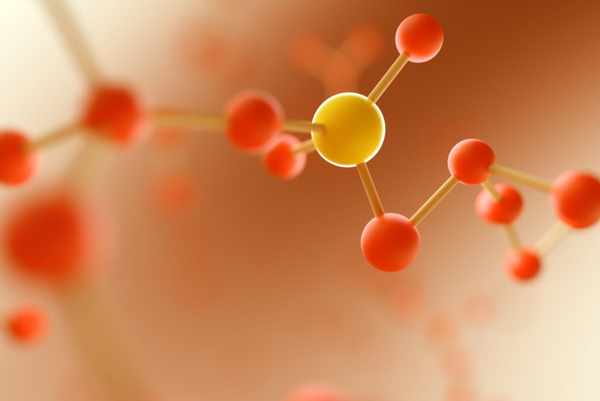Intermittent fasting is a diet pattern that most of us are aware of and have done at least once in our lives in hopes of losing weight. While every other John Doe could have their own version of what intermittent fasting really is, the right method is something only nutritionists and dieticians can help you execute in a sustainable and rather healthier way. While this type of diet has its advantages and has been effective for countless people who’ve wanted to lose weight, it also needs to be done correctly. If not, you might end up with unwanted nutritional gaps in your overall diet.
So what exactly does intermittent fasting do to your body?
Intermittent fasting, as the name suggests, involves eating and fasting for specific periods throughout the day. Instead of traditional diets that advocate eating (and not eating) certain foods, intermittent fasting, or IF, is all about ‘when’ to eat. The most common IF method is the 16/8 method, wherein 16 hours are for fasting and the eating window is restricted to 8 hours every day. The primary goal of intermittent fasting is to allow your body to utilize stored energy, i.e., fat, as fuel and, in turn, help you burn it, leading to weight loss. Here are a few ways in which it affects your body to help you understand IF better.
1. Effect on insulin and fat:
When you fast, your body experiences a decrease in insulin levels. By reducing insulin levels during fasting periods, your body becomes more efficient at burning stored fat for energy. This can contribute to weight loss and improved metabolic health.
2. Effect on hormones:
Intermittent fasting can affect various hormones in your body. For instance, fasting increases the production of growth hormone, which aids in fat loss and muscle gain. Additionally, studies have shown improvements in insulin sensitivity, i.e., how effectively your cells respond to insulin, blood sugar control, and waist circumference reduction.
3. Effect on cell functioning:
Intermittent fasting triggers a process called autophagy. During autophagy, your cells break down and recycle old or damaged components within them. This cellular cleanup process helps remove waste materials and dysfunctional proteins, potentially protecting against certain diseases and promoting cellular health.
Considering the numerous benefits of intermittent fasting, one might ponder, "If it's such a beneficial practice, why would we require supplementation while following an intermittent fasting regimen?"
Below, we explore several reasons that shed light on the necessity of supplementation during intermittent fasting.
i) IF might not always meet your nutritional requirements:
Depending on your specific eating pattern and food choices during eating windows, it can sometimes be challenging to meet all of your nutrient needs. While whole foods should always be the primary source of nutrients, supplements can help fill potential gaps and ensure adequate intake of essential vitamins, minerals, and other nutrients.
ii) Your micronutrient intake could be neglected:
Some individuals may have specific nutrient deficiencies or increased nutrient needs due to various factors such as age, medical conditions, or dietary restrictions. In such cases, targeted supplementation can help address these deficiencies and support overall health.
iii) Summer is in full swing and can cause loss of electrolytes:
Extended fasting periods, especially in certain methods of IF, can potentially lead to imbalances in electrolytes like sodium, potassium, and magnesium. Supplementation with electrolytes can help maintain proper hydration, support muscle function, and prevent symptoms like fatigue, muscle cramps, or dizziness.
Which dietary supplements are beneficial for those who practice intermittent fasting?
While it's best to ensure your diet gives you all the adequate nutrition you need before looking for a supplement, one may still miss out on some much-needed nutrients and put their body’s efficiency at stake. Some natural supplements that someone can look out for in conjunction with intermittent fasting are:
1. Multivitamins:
Micronutrients such as vitamins and minerals are crucial for various bodily functions, including energy production, immune function, metabolism, and tissue repair. A well-formulated multivitamin ensures you're getting adequate amounts of these micronutrients, which can support overall health and well-being.
2. Apple Cider Vinegar:
Apple Cider Vinegar has been studied for its potential to improve insulin sensitivity and help regulate blood sugar levels. Some research suggests that consuming ACV can have positive effects on weight, BMI, blood glucose, and blood lipid levels. It’s one of the best natural supplements that is easily available and is also a great addition to your weight-loss regime.
3. Omega-3 fatty acids:
Omega-3 fatty acids have been extensively studied for their health benefits. They have anti-inflammatory properties, support heart health by reducing triglyceride levels and blood pressure, and play a crucial role in brain function and development. If your diet doesn't include fatty fish or plant-based omega-3 sources at least 3–4 times a week, supplementation with fish oil or algae-based omega-3 supplements can help ensure an adequate intake of essential fatty acids.
4. Electrolytes:
During extended fasting periods, electrolyte imbalances can occur, leading to symptoms such as fatigue, muscle cramps, or dizziness. Look for products specifically formulated for fasting or those that are formulated to replenish electrolytes lost through sweating or other forms of dehydration.
5. Probiotics:
If may have an impact on the gut microbiome, and incorporating a high-quality probiotic supplement can help maintain a healthy balance of gut bacteria during fasting and eating periods. Probiotic supplements contain specific strains of beneficial bacteria, such as Lactobacillus and Bifidobacterium, which have been shown to have positive effects on gut health. When selecting a probiotic supplement, consider factors such as the number of live bacteria (colony-forming units, or CFUs).
Wrapping Up
While intermittent fasting comes with its own set of benefits, it may not be suitable for everyone, especially kids under 18 years, pregnant or lactating mothers, senior citizens, type 1 diabetics, or people with gut disorders. Kindly check with your doctor once before you plan to start the IF diet.
While following the IF diet, it can surely be beneficial to incorporate some natural supplements into your regime and make the most of your diet during your fasting phase. Make sure you choose supplements that help you fill the nutritional gaps you may face to avoid overconsumption of nutrients. Remember, balance is key, even when it comes to your nutritional intake!
—
References:
https://www.ncbi.nlm.nih.gov/pmc/articles/PMC8970877/
https://www.nccih.nih.gov/health/omega3-supplements-in-depth
https://www.ncbi.nlm.nih.gov/pmc/articles/PMC8243436/
https://www.sciencedirect.com/science/article/abs/pii/S1756464618300483






























 DOWNLOAD NOW
DOWNLOAD NOW
